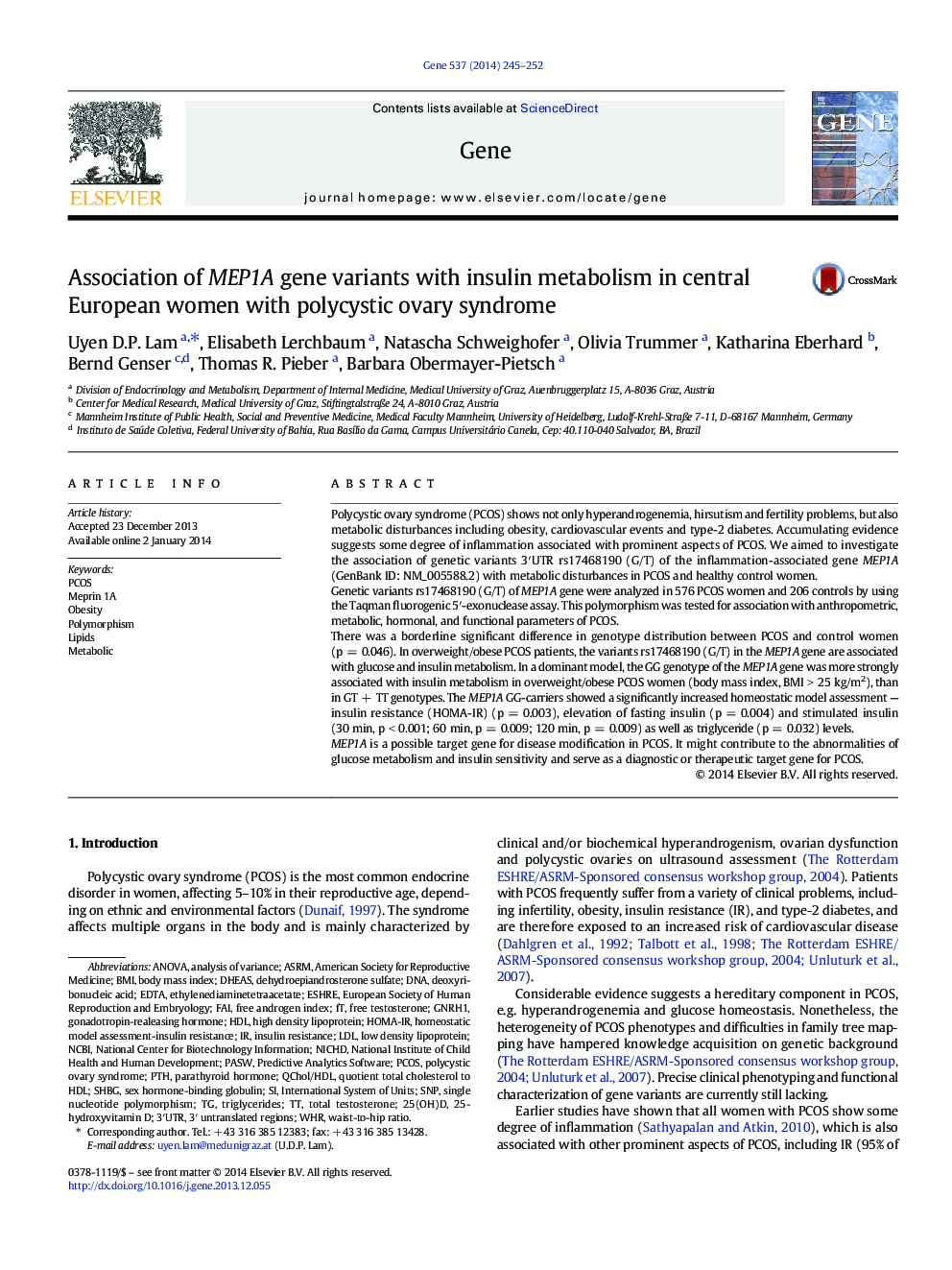| Article ID | Journal | Published Year | Pages | File Type |
|---|---|---|---|---|
| 2816678 | Gene | 2014 | 8 Pages |
•The MEP1A rs17468190 (G/T) is associated with insulin metabolism in PCOS women.•The MEP1A rs17468190 (G/T) might contribute to the pathogenesis of PCOS.•The MEP1A rs17468190 (G/T) may be a disease modifying factor of PCOS.•The MEP1A rs17468190 (G/T) could be of clinical relevance for PCOS treatment.•The MEP1A rs17468190 (G/T) could contribute to patients' specific therapy schemes.
Polycystic ovary syndrome (PCOS) shows not only hyperandrogenemia, hirsutism and fertility problems, but also metabolic disturbances including obesity, cardiovascular events and type-2 diabetes. Accumulating evidence suggests some degree of inflammation associated with prominent aspects of PCOS. We aimed to investigate the association of genetic variants 3′UTR rs17468190 (G/T) of the inflammation-associated gene MEP1A (GenBank ID: NM_005588.2) with metabolic disturbances in PCOS and healthy control women.Genetic variants rs17468190 (G/T) of MEP1A gene were analyzed in 576 PCOS women and 206 controls by using the Taqman fluorogenic 5′-exonuclease assay. This polymorphism was tested for association with anthropometric, metabolic, hormonal, and functional parameters of PCOS.There was a borderline significant difference in genotype distribution between PCOS and control women (p = 0.046). In overweight/obese PCOS patients, the variants rs17468190 (G/T) in the MEP1A gene are associated with glucose and insulin metabolism. In a dominant model, the GG genotype of the MEP1A gene was more strongly associated with insulin metabolism in overweight/obese PCOS women (body mass index, BMI > 25 kg/m2), than in GT + TT genotypes. The MEP1A GG-carriers showed a significantly increased homeostatic model assessment — insulin resistance (HOMA-IR) (p = 0.003), elevation of fasting insulin (p = 0.004) and stimulated insulin (30 min, p < 0.001; 60 min, p = 0.009; 120 min, p = 0.009) as well as triglyceride (p = 0.032) levels.MEP1A is a possible target gene for disease modification in PCOS. It might contribute to the abnormalities of glucose metabolism and insulin sensitivity and serve as a diagnostic or therapeutic target gene for PCOS.
